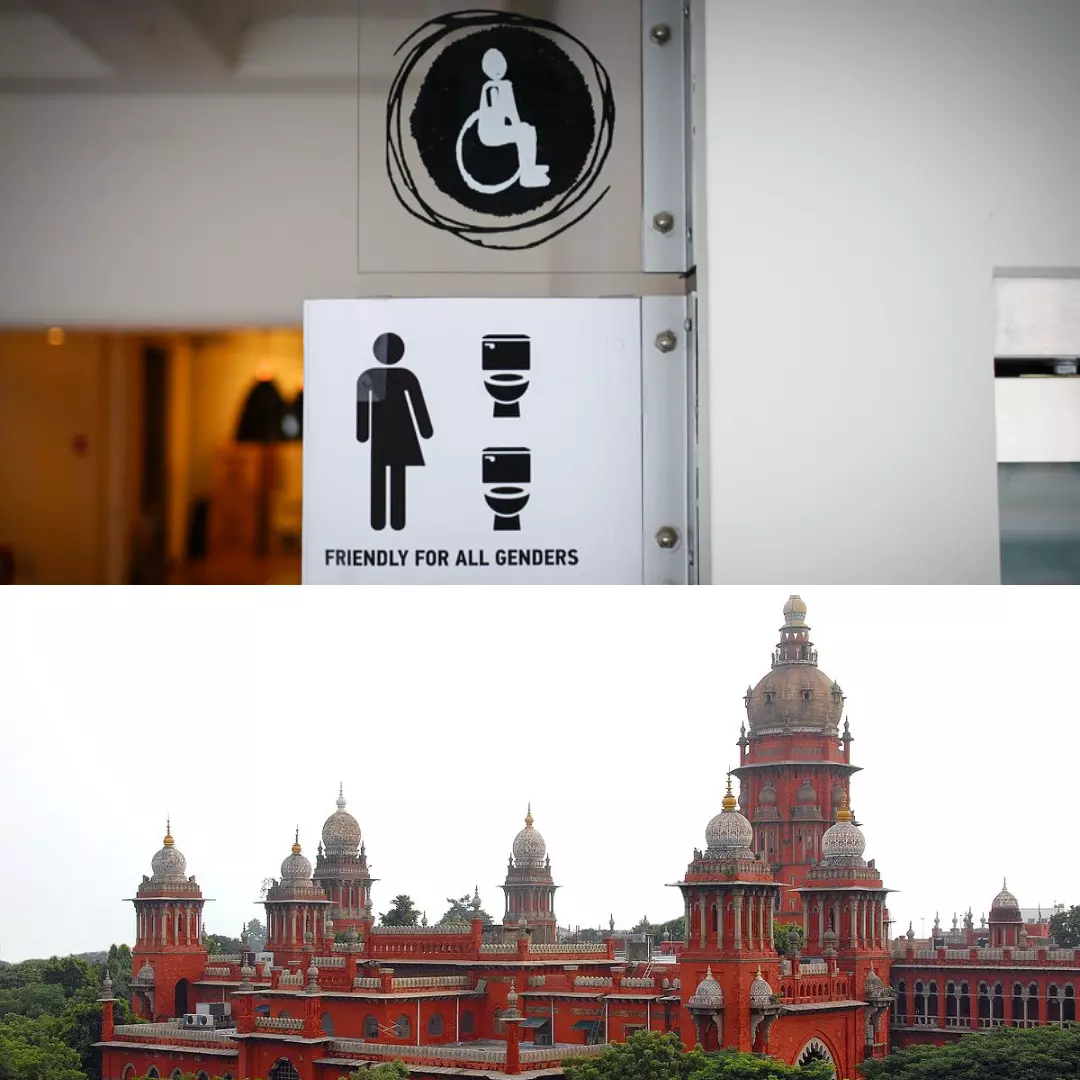LGBTQ Activist Moves Madras HC For Gender-Neutral Restrooms In Public Spaces
Writer: Navneet Nishant
I am a Media Student currently pursuing Master's in Mass Communication From Central University Of Jharkhand, I have done my previous internship In Jharkhand state livelihood promotion society as KMC intern.
Tamil Nadu, 5 Feb 2023 9:14 AM GMT
Editor : Jayali Wavhal |
She writes about gender issues, human interest, and environment.
Creatives : Jayali Wavhal
She writes about gender issues, human interest, and environment.
The petitioner claims that the Transgender Persons (Protection of Rights) Act requires the government to ensure the transgender community's full and effective participation and inclusion in society. He stated that "the state's failure to build single occupancy gender neutral/all-gender restrooms violates the law."
An LGBTQ activist has filed a petition with the Madras high court asking for gender-neutral restrooms to be added to the existing gender-based restrooms in all public spaces, including schools, bus stops, and train stations.
In addition to fostering an accepting and diverse community, having gender-neutral restrooms will eliminate any social shame associated with gender identification, according to petitioner Fred Rogers.
Petition In Accordance With Transgender Persons Act
The petitioner claims that the Transgender Persons (Protection of Rights) Act requires the relevant government to take action to ensure transsexual people's full and effective participation and inclusion in society. The first bench, consisting of Acting Chief Justice T Raja and Justice D Bharatha Chakravarthy, accepted the petition and ordered the Tamil Nadu government to submit a response before the hearing could continue on February 7, reported by The Times Of India.
The petitioner stated that "the state's failure to build single occupancy gender neutral/all-gender restrooms violates the law." He said, "The law requires the state to build institutional and infrastructure facilities, such as private hospital restroom wards, within two years of the start of the restrictions outlined in the act".
The petitioner claimed that no action had been taken to provide such restrooms in public areas. As a result, the petitioner asked the court to order the state government to build single-occupancy, gender-neutral restrooms in addition to those already present in public spaces that should be open to people who identify as cisgender, transgender, queer, non-binary, gender non-conforming, and other people.
What DoesTransgender Act Say?
The Transgender bill was introduced in the Lok Sabha in July 2013 and was passed by both houses in 2019 with constitutional legitimacy. According to the act, a transgender person's gender does not correspond to the gender assigned at birth. The 2019 Act's statutory provisions forbid discrimination against transgender individuals.
A transgender person may apply to the district magistrate for a transgender person certificate, which will grant them the ability to change their name on their birth certificate and have all papers amended properly, in accordance with the terms of the 2019 legislation. The 2019 act also offers protection for transgender youngsters and directs organisations and states to develop proper transgender welfare programmes.
A court order may be used to legally separate a transgender child from their family under the terms of the 2019 act. Reservations for transgender people in workplaces and educational institutions are not, however, included in the act. The law also outlines the penalties for offences committed against transgender individuals, which include a fine and a period of imprisonment of at least six months but up to two years.
 All section
All section














